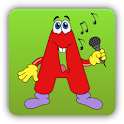Phonics lessons are one of the more expensive enrichment courses in which parents can enroll their children. However, proficiency in phonics is a frequently underrated skill. Here’s why you should let your child learn phonics, as well as some resources to help you get your child started on learning phonics.
Why Learning Phonics is Important for Kids

Phonics is one of the main methods of developing children’s reading skills1. Studies among young learners have shown that early phoneme awareness and phonics teaching improves reading and spelling for second language learners2, and primary schools in Singapore also use phonics in the Learning Support Programme to help lower primary students whose foundation in English is weak. As opposed to the “whole language” method of recognizing entire words, phonics uses a “part-whole” concept to teach the pronunciation of words. For example, a child will learn the “-at” sound, and then add consonants to it to form words like “cat, bat, hat, rat, fat”.
Phonics helps learners of a new language break words down into individual syllables, improving accuracy in pronunciation. Learners of East Asian languages such as Chinese and Japanese follow a strict set of phonetic rules for pronunciation. Similarly, learning phonics helps in English and other European languages.
How to Get Your Child Started on Learning Phonics
The easiest way to start your child on learning phonics is through reading. You can read with your child and explain how and why words are pronounced in certain ways. You can also look for rhyming picture books specially designed to help young readers understand phonics.
Speech and drama classes for young children often include phonics lessons as part of the syllabus.
There are also plenty of phonics games and apps to get your child practising their phonics and reading.

Kids ABC Phonics for Android
Kids ABC Phonics comprises a variety of games to help young children match consonants and vowels to form words. Comes in both free (Lite) and paid versions. For kids aged 2-7.

Phonics Genius for iPhone/iPad
This free app is not as colourful or eye-catching, but is very neatly organised and contains over 6000 words grouped by phonics sounds. For kids aged 1-6.

LearnEnglish Kids: Phonics Stories for iPad
Developed by the British Council, this free app contains interactive stories that will help your child improve their English language listening and pronunciation. Each story focuses on a different set of phonics sounds, as well as a picture dictionary.
What About the International Phonetic Alphabet?
The International Phonetic Alphabet, known as IPA, is an alphabetic system of phonetic notation based primarily on the Latin alphabet. It can be used to indicate the pronunciation and intonation of syllables in a word. IPA is used for various European languages, notably English and French, and is a solid foundation for older children (10 years old onwards) to learn foreign languages, but will be too dry and complex for younger children. Make sure your child has a solid grasp of basic phonics before embarking on using IPA.
Is your child already learning phonics? Have you seen an improvement in their reading and oral language skills? What methods and resources do you use to teach phonics to kids? Share your thoughts in the comments.
References
1. National Reading Panel, Teaching Children to Read: An Evidence-Based Assessment of the Scientific Research Literature on Reading and Its Implications for Reading Instruction
2. Stuart, M. (1999), Getting ready for reading: Early phoneme awareness and phonics teaching improves reading and spelling in inner-city second language learners. British Journal of Educational Psychology, 69: 587–605.
Tags: Kindergarten (5-7), languages, Lower Primary (7-10), Upper Primary (10-12)
at 5:11 PM
I have seen some kids being taught more than 3 different languages right from the age 7-8. There are some people around who take pride in forcing their kids to become polyglot. It’s nothing but torture in the name of education. My son is 3 and he is growing up in a family where people speak 4 different languages and it’s very difficult for him to pick one over the others.
He has never been forced and we reply to him in whichever language he chooses to communicate.
at 6:30 PM
The problem arises when parents send their kids to language classes but make no effort at immersion. As a result, the child finds the language useless and ends up learning a bunch of useless phrases instead of naturally picking it up, the way you’re letting your son do so. Kudos to you.